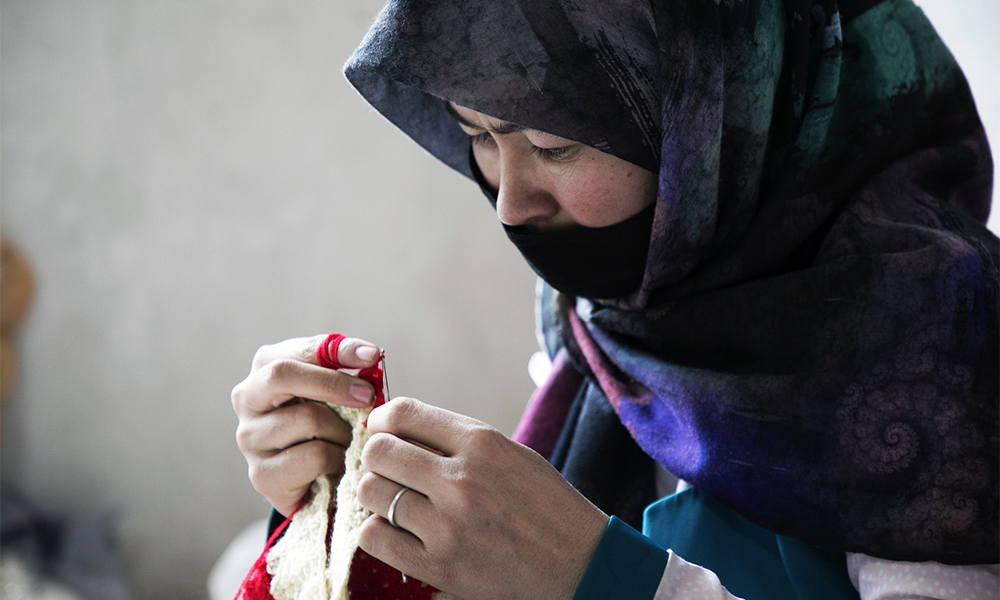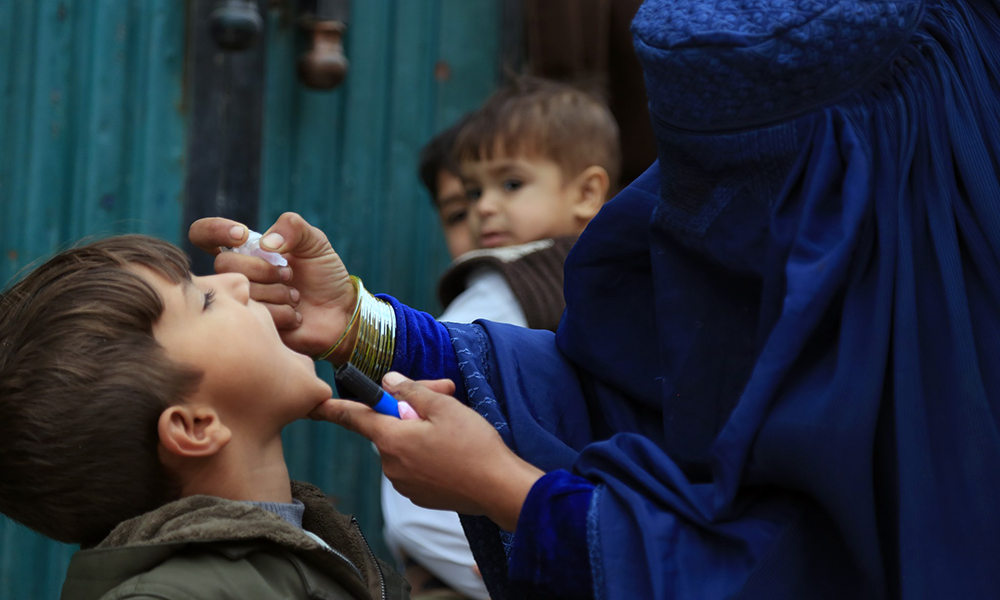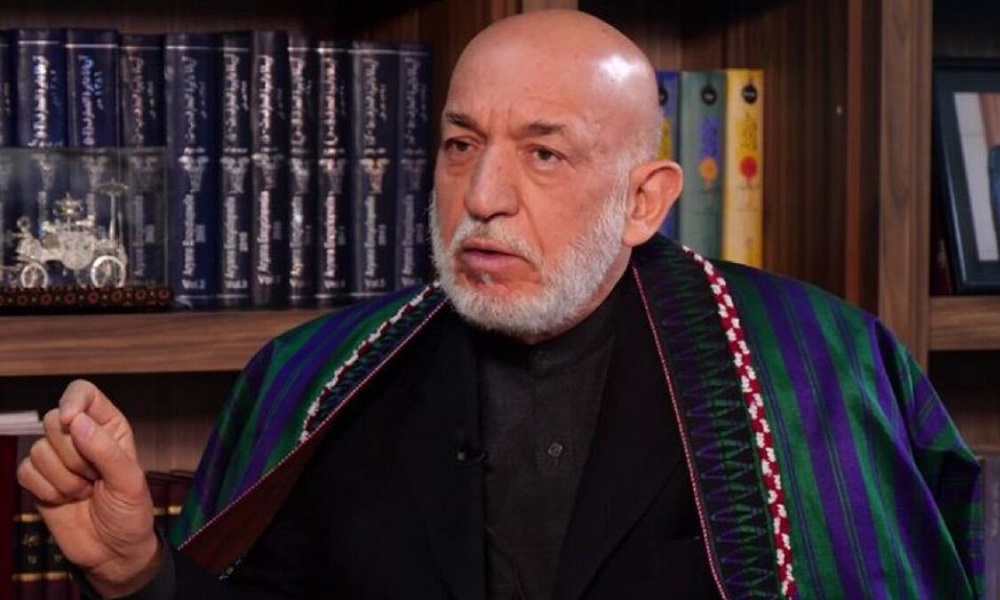Latest News
UNDP warns curbs on women’s rights will worsen economic catastrophe in Afghanistan

A new study of Afghanistan’s economy shows that without continuity for girls’ education and women’s ability to work, prospects for the country’s recovery will remain grim.
The study, “Afghanistan Socio-Economic Outlook 2023”, released Tuesday in Kabul by the United Nations Development Programme (UNDP), details how Afghanistan’s economic output collapsed by 20.7 percent following the Islamic Emirate of Afghanistan’s takeover in 2021. “This unparalleled shock has kept Afghanistan among the poorest countries in the world,” the agency said.
Despite tentative signs of recovery, such as a relatively stable exchange rate, an increase in exports, growing demand for labor, and muted inflation, GDP is estimated to have further declined by 3.6 percent in 2022, the report noted.
“A sustained inflow of foreign aid, to the tune of $3.7 billion in 2022, has helped avert the total collapse of Afghanistan,” said UNDP Resident Representative in Afghanistan Abdallah Al Dardari.
The United Nations (UN) contributed $3.2 billion of the overall $3.7 billion in foreign aid to Afghanistan in 2022. UN assistance directly reached 26.1 million Afghans with some form of aid, while helping to stabilize the exchange rate, curb inflation and affect other economic indicators.
The new report projects that the 2023 GDP in Afghanistan could increase by 1.3 percent if the level of foreign aid remains at $3.7 billion. However, prospects for economic recovery remain weak and insufficient over the long term, especially if foreign aid is withheld as a result of restrictive IEA policies, UNDP stated.
“There will be no sustainable recovery without the active participation of Afghan women in the economy and in public life, which includes delivering on humanitarian and livelihoods-saving projects,” said UNDP Regional Director for Asia and the Pacific, Kanni Wignaraja. “Only the full continuity of girls’ education and women’s ability to pursue work and learning can keep the hope of any real progress alive.”
The new UNDP paper analyzes the potential impact of a hypothetical aid cut on Afghanistan’s economy. Using an indicative value of a 30 percent reduction in aid from $3.7 billion to $2.6 billion, UNDP projects that Afghanistan’s GDP would further contract by 0.4 percent, a decline that would send the country hurtling to the bottom of the global poverty scale.
The study notes that impoverished Afghans are already taking extreme measures to survive. “Some have been compelled to sell their homes, land, or assets that generate income; others have resorted to the distressing practice of commodifying their own family members, turning children into laborers and young daughters into brides,” the report states.
“Afghanistan is on the brink of economic collapse, exacerbated with the takeover in August 2021. The effects of the pandemic, followed by an extraordinary 20.7 percent contraction of the economy, and an unusually severe drought, have resulted in the loss of food, livelihoods and access to basic services,” said UNDP Administrator Achim Steiner in a statement. “Only the continued provision of international aid and basic services to millions of Afghans have prevented a full collapse.”
The research finds that the number of people living in poverty skyrocketed from 19 million in 2020 to 34 million in 2022. “If foreign aid is reduced this year, Afghanistan may fall from the cliff edge into the abyss,” Al Dardari cautioned.
Latest News
A new polio vaccination campaign is set to launch in Afghanistan
Afghanistan and Pakistan are the only two countries in the world where polio has not been eradicated.

The “Afghanistan Polio-Free” organization announced that a new round of polio vaccinations will begin on Monday, December 23, in various provinces of Afghanistan.
The organization did not specify which provinces will be targeted or how long the vaccination campaign will last.
Afghanistan and Pakistan are the only two countries in the world where polio has not been eradicated.
On December 4, 2023, the World Health Organization (WHO) issued a statement reporting a 283% increase in polio cases in Afghanistan. According to the WHO, the number of positive environmental samples for wild poliovirus type 1 in Afghanistan in 2024 reached 84, compared to 62 cases in 2023.
The Ministry of Public Health claimed in November 2024 that no new cases of polio had been reported in Afghanistan for the year.
Latest News
G7 envoys urge national dialogue for lasting stability in Afghanistan

Special Representatives of the Group of Seven (G7), including the European Union, have emphasized the importance of a national dialogue for achieving long-term stability in Afghanistan.
Following a meeting on Afghanistan in Geneva, Switzerland, G7 special envoys issued a joint statement calling for the restoration of women's rights and urging the Islamic Emirate to fight terrorism.
The statement reads: "Achieving sustainable peace and stability requires credible governance that represents all segments of Afghan society."
The representatives also expressed concern over the IEA’s decision to ban girls from attending medical institutes, warning that it will have devastating consequences for the citizens, particularly mothers and their infants.
The statement described this ban as unacceptable and called on the Afghan authorities to lift it immediately.
Earlier, countries and international organizations had called for the removal of restrictions on the education and employment of women and girls, emphasizing the need for a national dialogue.
In response to these concerns, IEA has repeatedly stated that it will not allow interference in the internal affairs of the country.
The G7 special envoys also expressed their concern about the recent terrorist attacks in Kabul and the surrounding region, warning that terrorism remains a serious threat to Afghanistan's security. They confirmed the actions of the IEA against Daesh but stressed the need for more decisive measures.
Latest News
Afghanistan’s bright future lies in educating girls: Karzai

Hamid Karzai, the former president of Afghanistan, says the demand of Afghan girls for the reopening of schools and universities is their fundamental right and adds that Afghanistan cannot have a bright future without ensuring access to education for girls.
In a statement on his X (formerly Twitter) account, Karzai said: "The demand and voice of our country’s girls for education and knowledge is a rightful one and crucial for a prosperous Afghanistan."
He further emphasized, "Empowering the youth—both girls and boys—is the only way to achieve self-reliance, break the cycle of poverty, and drive the development and prosperity of society."
Karzai underscored that education is vital for Afghanistan’s growth and development, expressing hope that the doors of schools and universities for girls will be reopened as soon as possible.
-

 Sport5 days ago
Sport5 days agoLanka T10: All three matches abandoned due to rain
-

 Latest News5 days ago
Latest News5 days agoIndia hoping to import coal and marble from Afghanistan
-

 Sport4 days ago
Sport4 days agoZimbabwe’s opening ODI against Afghanistan abandoned
-

 Latest News5 days ago
Latest News5 days agoJapan announces $27.5 million aid package to Afghanistan
-

 Latest News1 day ago
Latest News1 day agoAfghan men must stand with women to support viable future of country: US envoy
-

 World3 days ago
World3 days agoNorth Korean troops suffer 100 deaths, struggling in drone warfare, South Korea says
-

 Latest News3 days ago
Latest News3 days agoTwo horror accidents on Kabul-Kandahar highway leave 52 dead
-

 International Sports4 days ago
International Sports4 days agoLanka T10: Kandy Bolts in at 4th spot in playoffs after thrilling day
























